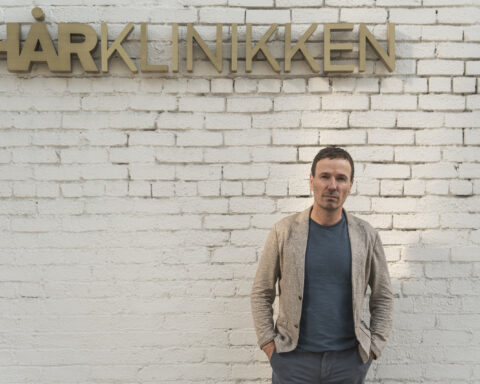We all know we need to exercise. We probably even know how many minutes we should work out and how many steps we should walk each day to keep healthy. Many of us pay for gym memberships, or even hire personal trainers, to help us reach our goals — and enjoy the process too.
But far less attention is placed on how to keep our minds in top shape — and our brain is probably our most important organ of all.
To some extent, this is changing. Most professional sportsmen now see sports psychologists to help them train their mind, a practice that was virtually unheard of until the 1980s.
And although has taken time to trickle down, the fans of top athletes are now beginning to see the benefits that mental training can have on their own lives and find resources available to them. NBA star Lebron James partnered with mindfulness app Calm this year to talk fans through his mind training techniques that he insists are as important as any physical exercise. And meditation app Headspace have a ‘Performance Mindset’ course in collaboration with NBA and WNBA stars.
When leading sportspeople want help fine-tuning their minds, they turn to elite sports psychologists like Dr Jim Taylor, an ironman triathlete and former world-ranked alpine ski racer who builds mind training routines for Olympic athletes.
And here he shares his five-step plan for training our mind and improving our performance — whether in sports or other areas of our lives.
Dr Taylor says: “Unfortunately the word psychology carries a lot of baggage — that if you need a psychologist you’ve got mental issues.
“But it’s just mental training and it should be treated the same way as physical training. If you think about a physical conditioning program, what makes it effective it is comprehensive, structured and consistent — and mental training should be the same.
“Too often people come to me when they already have a mental performance problem. So they get too nervous or they’ve lost confidence or they are unmotivated. That’s like waiting to get injured to try to get fit.
“And everything I work on with athletes are not specific to sports — it’s about performance. I have worked with business people, with surgeons, with performing artists. Performance is performance and it applies to all walks of life.”
Here Dr Taylor explains the five mental tools that he works on with clients to maximize their performance. These are:
GOALSETTING
“If there is something you are trying to achieve, lay out very specific goals of the results you want and then the step by step process of what you need to do to achieve them. The research is very clear that if you set specific and tangible goals you are more likely to adhere to them and stay motivated to do the work and ultimately to achieve that goal.”
MENTAL IMAGERY
“Also called visualization, this involves seeing and feeling yourself performing. You lie down, you take deep breaths, you relax and you imagine yourself for five or ten minutes performing in your sport with a very specific goal in mind. There is very robust research that this not only helps psychologically — in terms of being more confident, more motivated, more focused — but it actually helps us to develop physical skills. You can get better in your sport without actually practicing. Doing this three or four times a week for ten minutes a day has an incredibly powerful impact.”
SELF-TALK
“What you say to yourself matters. If you say to yourself, ‘I can’t do this,’ you could have all the ability in the world but you’re not going to give your best effort. Self-talk is a habit. If you practice saying negative things, then when the time comes to perform that is what comes out. When it really counts, it’s the belief that will make the difference of whether you actually do it.”
ROUTINE
“Routines are so valuable whether before sports performances, before presentations at work or before recitals on the stage. Routines ensure total preparation — so have you reviewed you notes, have you warmed up your body, have you done your imagery, is your equipment ready? People get nervous before performances, but routines create familiarity, predictability and control — and this makes us feel safe. And this is true to life more generally. By doing certain things at certain times and in certain ways it allows us to not only perform well in specific activities but also be happier and healthier in life.”
BREATHING
“People don’t normally think about breathing as it happens automatically. But it can be an incredible powerful tool. Most aspects of our physiology we can’t control directly. We can’t automatically lower our heart rate, change our blood flow or release adrenalin. But we can control our breathing and by doing so we can impact all these other physiological areas that are out of our control. We can use breathing to calm down or to fire up. And it is very clear from the research on meditation that is has a tremendous impact on us psychologically. It’s a centering tool for focus, it makes us feel more comfortable and in control, and it reduces fear and anger.”
Lebron, now in this 17th NBA season, has specifically credited meditation and mindfulness with improving his performance and he teamed up with the Calm app earlier this year to share his wisdom with their subscribers.
The LA Lakers star says: “As an athlete, there’s a lot of focus on physical fitness. This partnership with Calm is all about mental fitness. It’s something I’ve always prioritized, and it’s just as important to my game, my career, and my life than anything I can do physically.
“The ability to focus and calibrate everything going on inside your mind is a skill that can be strengthened over time.”
Many of the world’s elite sportsmen past and present have credited meditation with boosting their careers — including Chicago Bulls star Michael Jordan who used meditation to fuel his all-conquering career in the 1990s.
George Mumford — the former basketball star whose career had been ruined by drug and alcohol addiction — joined the Bulls staff as a mindfulness coach and helped Jordan regain his ambition and focus after the death of his father.
After his famous last-gasp game-winning shot against Utah Jazz in the 1998 Playoffs, Jordan said: “I just decided to use a little bit of the Zen Buddhism and relax.”
Crediting mindfulness rather than his physical training for this iconic sporting moment was met with some skepticism at the time — the Los Angeles Times report punctuated his quote by writing “uh huh.” But attitudes are changing. Mental coaches have become commonplace in sport. Soccer stars Lionel Messi and Cristiano Ronaldo and Lebron’s NBA rival Stephen Curry are among the other advocates of mindfulness and meditation to maximize their potential. And now fans of sport legends are also seeing how we can use these techniques to help us achieve our own goals in life — on and off the court — and there are more tools than ever out there to help us. But are we taking it seriously enough? The leading mindfulness apps Headspace and Calm both cost less than $100 per year to subscribe — the price of two months membership at an average gym. But the 60 million gym members in the US is far higher than the number of people specifically targeting work-outs for their mind.
Lebron’s ‘Train Your Mind’ series on the Calm app released the first five segments earlier this year. His three top tips on keeping our minds in shape are all sensible, practical pieces of advice that we can all follow in principle (even if we can’t find time for a two-hour nap in the day!) They are:
PRIORITIZE SLEEP
Lebron has eight hours sleep a night and also a two hour nap in the day. He sets his whole schedule around this sleep pattern and makes sure he optimizes his environment for sleep every night. He says: “The thing I prioritize above everything else is sleep. There’s nothing more valuable to my body, my recovery, my career or even my happiness. What’s crazy is the most powerful thing you can do for your health is also the most natural thing you can do.”
PREPARATION MATTERS MORE THAN THE GOAL
By being fully prepared we can accept the outcome of our endeavors win or lose. That includes being present in our preparation and finding a quiet mental space to disappear to before big moments in our lives. “I focus on the process not the outcome,” Lebron says. “I hold onto a vision of where I’m heading but on the way I stay locked in the moment and trust that the work is going to take me there.”
WHEN THE BIG MOMENT COMES, MANAGE YOUR EMOTIONS
Lebron has a three-step guide to “staying locked in the moment” at crucial points of your life. Take a deep breath. Put on those blinders. Tune out the noise. He says: “There are 1000 things fighting you for your attention. When the moment arrives all that stuff needs to disappear. A big part of this is letting other people’s emotions slide off of you. You need to tune it all out and stay in the moment.”

Lebron James cuts out the noise for a free throw // 📸: The Mega Agency
NOW FOR THE SCIENCE
Mindfulness app Headspace have specific guided meditations in their ‘Performance Mindset’ course — targeting managing pressure, focus, resilience and confidence — led by co-founder and former Buddhist monk Andy Puddicombe in partnership with the NBA and WNBA.
And they have also recently launched the Move Mode feature on their app to help members strengthen their body and mind together, guided by Olympic athletes Kim Glass and Leon Taylor along with mental training from Andy.
Headspace explain how improved mental fitness can help athletes in their NBA White Paper — and many of these benefits can help regular folk in our daily lives too.
Research in Denmark found using Headspace for four weeks could improve focus by 14 per cent. And while our attention “blinks” for half a second when transitioning focus, meditation has been shown to cut the time of that “blink.” For athletes, this could impact the transition time from moving from one play to the next. Off the court this could help us make quicker, better decisions in our life.
And a study at Massachusetts General Hospital of 20 regular meditators compared to a group of participants with no meditation experience found increased gray matter in the prefrontal cortex region of the brain that is responsible for focus. And that increased thickness correlated with meditation experience, showing that like any muscle it can be strengthened over time with training.
And while strengthening useful parts of the brain, meditation can also shrink areas that can get in the way us achieving our goals — just like physical exercise can make some parts of our body stronger while trimming the unwanted excess.
A study by Harvard-led researchers took MRI scans of the brains of 16 participants before they undertook an eight-week mindfulness program and compared them to a control group. Participants reported reductions in stress and these were correlated with decreased gray-matter density in the amygdala, the part of the brain that controls our stress levels.
A regular meditation practice can also train your brain to reduce overthinking and cope better with negative thoughts. For athletes or in everyday life, this could mean stopping dwelling on our mistakes and concentrating on the next best step forward.
Meditation has been proven to make us physically fitter too, including decreasing our heart rate and blood pressure.
And while studies have shown that mental fitness training can improve our physical performance, physical exercise can help with our mental health.
A Harvard Medical School study reveals moderate-intensity exercise can help improve our thinking and memory in just six months. Exercise directly boosts the body by stimulating physiological changes such as reductions in insulin resistance and inflammation, along with encouraging the growth of new blood vessels in the brain.
And studies suggest the parts of the brain that control thinking and memory are larger in volume in people who exercise than in those who don’t.
Dr Scott McGinnis, an instructor in neurology at Harvard Medical School, says: “There’s a lot of science behind this.
“Engaging in a program of regular exercise of moderate intensity over six months or a year is associated with an increase in the volume of selected brain regions.”
So mental training can improve our physical fitness and working out can give us a bigger brain. It just shows, if we look after our bodies and mind it may look after us in ways we did not expect.
Dr Taylor has seen sports psychology grow in popularity since he took a summer course in performance boosting techniques as teenager. The course at a local college, near his hometown in Connecticut, helped the promising skier banish his own self-doubts that were holding back his sporting potential and lead to him getting selected for the US national ski team. And it also started him on the journey that would become his lifelong passion and career.
But he is surprised targeted mental training has not become even more commonplace, like personal fitness trainers, across broader performance-related fields.
He says: “Personal training has become big business. I’ve been in this mental training field for 30 years, and every five years I think: ‘This is when it’s going to really catch on.’
“And yes, most professional teams and major college teams have some kind of sports psychology component. But think about High Schools, health clubs, amateur sports — they all have conditioning people and technical people but very few have mental coaches or sports psychologists.
“Everyone will tell you the mental side is so important but very few are really doing anything about it. These techniques could be used anywhere we are trying to maximize performance.
“These are all skills we can build over time. It can take some effort to be aware of these things and remind yourself to do them. But after a while, like any habit, they become ingrained. So before that sports match or work presentation you just naturally take deep breaths, or remember to visualize, and it makes you perform better.”











